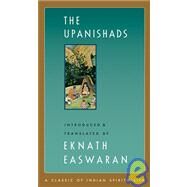- ISBN: 9781586380212 | 1586380214
- Cover: Paperback
- Copyright: 8/28/2007
The Upanishads are among the oldest of the Indian wisdom texts, probably composed around 800 - 400 BCE. They are the records of question-and-answer sessions given by illumined sages to their students in intensive sessions of spiritual instruction. Most of these sessions take place in an ashram or "forest academy" along the banks of the upper Ganges, but the Upanishads include a wide cast of characters. A wife asks her husband, who is about to renounce the world, to teach her the meaning of immortality before he leaves; a famous king in his court seeks instruction from a highly unconventional sage; a teenage boy banished by his angry father dares to ask Death himself for the secret of eternal life. The Upanishads are featured in many philosophy courses today and have puzzled and inspired wisdom readers from Yeats to Schopenhauer. They reflect flashes of insight, extraordinary visions, the direct experience of the sages in an encounter with transcendent Reality. The Upanishadic sages found that there is a changeless Reality underlying the ebb and flow of life, which is the essence, or Self, of each created being, regardless of who we are or what we have done. Each of us, each Self, is one with the power that created the universe, and this "oneness" is our native state, eternal, deathless. The sages' discoveries are an expression of what Aldous Huxley called the Perennial Philosophy, the wellspring of all religious faith.






